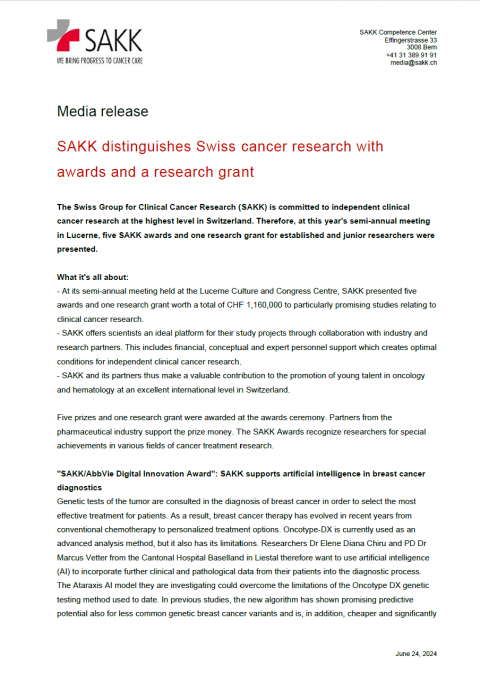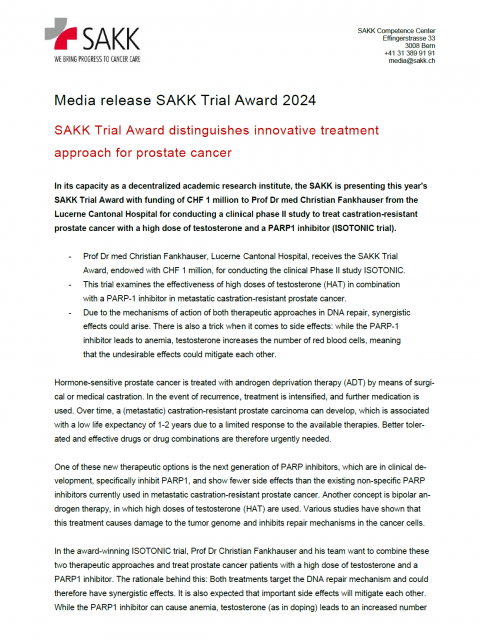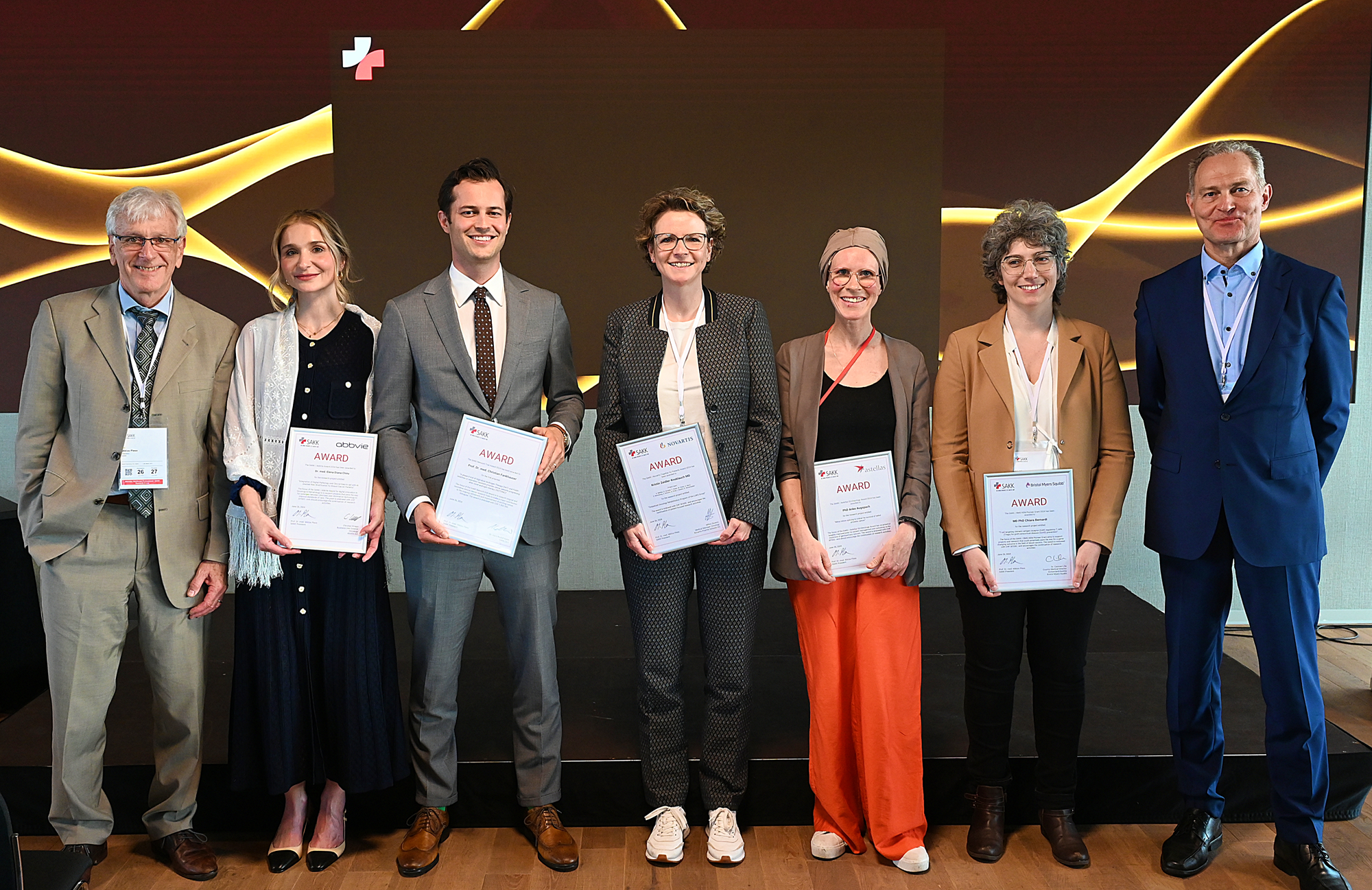SAKK Awards 2024
SAKK and Partners honors cancer research projects
The Swiss Group for Clinical Cancer Research (SAKK) is committed to independent clinical cancer research at the highest level in Switzerland. At its semi-annual meeting held at the Lucerne Culture and Congress Centre, SAKK presented five awards and one research grant worth a total of CHF 1,160,000 to particularly promising studies relating to clinical cancer research. Partners from the pharmaceutical industry support the prize money.
The winners 2024
"SAKK/AbbVie Digital Innovation Award": SAKK supports artificial intelligence in breast cancer diagnostics.
Researchers Dr Elena Diana Chiru and PD Dr Marcus Vetter from the Cantonal Hospital Baselland in Liestal want to use artificial intelligence (AI) to incorporate further clinical and pathological data from their patients into the diagnostic process. The Ataraxis AI model they are investigating could overcome the limitations of the Oncotype DX genetic testing method used to date.
From the left: Thomas Birchler, Miklos Pless, Elena Diana Chiru, Christian Knapp
"SAKK/Astellas GU-Oncology" Award: SAKK honors research on new treatment option for prostate cancer.
Based on this finding, Dr Anke Katharina Augspach and her colleagues at the University of Bern have developed a new approach to treating prostate cancer. They were able to show that therapy-resistant prostate cancer cells survived less well when the minor splicing mechanism was inhibited by a so-called siRNA.
From the left: Richard Cathomas, Anke Augspach, Stephanie Saul
"SAKK/BMS HEM Pioneer" Grant: Funding for research to prevent graft-versus-host disease after allogeneic hematopoietic stem cell transplantation.
Allogeneic hematopoietic stem cell transplantation (allo-HSCT) is used for a wide range of hematological diseases. The most common non-infectious complication is graft-versus-host disease (GvHD). Immunosuppressants are currently used for GvHD prophylaxis, but these can inhibit the anti-tumor effect of allo-HSCT. Researcher PD Dr Chiara Bernardi from Geneva University Hospital (HUG) and her team would therefore like to develop a new cell therapy based on regulatory T cells (Treg).
From the left: Gabriela Baerlocher, Chiara Bernardi, Maryna Levikova
"SAKK//Gilead Expanding Horizons in Oncology" Award: SAKK distinguishes training of healthcare professionals in patient involvement.
The increased involvement of patients promises benefits for oncological research and drug development, for example in the evaluation of new treatment methods. As part of joint SAKK and IOSI activities in this area, Dr Marco Cefalì from the Ente Ospedaliero Cantonale (EOC) is now organizing workshops that will give healthcare professionals in oncology and hematology an understanding of what patient involvement means and why it is relevant. (Representated by Prof. Cristina Sessa)
From the left: Richard Cathomas, Cristiana Sessa, Philip Becker
"Novartis Together for Patients Award": Funding for the expansion of outpatient oncology rehabilitation.
The reintegration of cancer patients into working and social life is an important issue. To support patients, Dr Kristin Zeidler-Knoblauch has established an outpatient oncology rehabilitation program at the four hospitals of the LUKS Group. The aim is to improve the program’s educational content, increase participants' adherence through motivational training and provide answers to frequently asked questions in the form of a video.
From the left: Milica Zecevic, Miklos Pless, Kristin Zeidler-Knoblauch, Astrid Marti
«SAKK Trial Award 2023-2024»: High testosterone dose in combination therapy for prostate cancer (ISOTONIC trial) receives funding.
Men with prostate cancer are currently treated palliatively with androgen deprivation therapy (ADT) by means of surgical or medical castration. The lack of testosterone causes unpleasant side effects, and the treatment can often only moderately extend the survival of those affected. The project of Prof Dr Christian Fankhauser from Lucerne Cantonal Hospital is pursuing the opposite direction. In the ISOTONIC trial, he and his team want to investigate the effectiveness of a high dose of testosterone in combination with another drug against prostate cancer. The trick: the two drugs cancel out each other’s side effect.
From the left: Miklos Pless, Christian Fankhauser, Hans Rudolf Keller
Congratulations to all the winners!

SAKK Awards 2024 Press release







